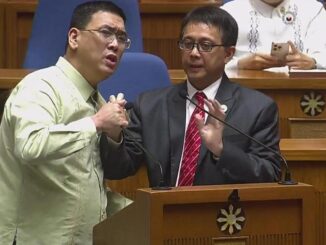
MANILA, Philippines — The House of Representatives starts today the deliberations on the proposed P6.352-trillion national expenditure program (NEP) for 2025 of the Marcos administration.
First to face the House committee on appropriations will be the economic team, which comprises the Development Budget Coordination Committee (DBCC) – the Department of Budget and Management, National Economic and Development Authority, Department of Finance and Bangko Sentral ng Pilipinas.
According to Marikina City Rep. Stella Luz Quimbo, committee vice chair, they will begin with the presentation of the DBCC to “determine the macroeconomic assumptions used in formulating the budget presented to Congress, the sources of funds, and priority expenditures.”
“This will be the basis of the Committee on Appropriations in filing the General Appropriations Bill that will be approved at the plenary,” Quimbo said, referring to the GAB that contains the NEP.
Speaker Martin Romualdez said the House would like to know from the economic managers “how the country could sustain its economic growth and how such growth could benefit our people.”
“Our economic expansion, projected by multilateral financial institutions at between 5.9 to 6.2 percent next year, should be felt by our people, especially the poor, in terms of more job and income opportunities, more affordable food on their table and lower consumer prices,” Romualdez said.
He noted that many of the poor complain that the economic boom is benefitting only the rich, the big companies and the stock and financial market investors.
“They say they cannot eat economic growth. If majority of our people do not feel our economic expansion, they should at least see it in terms of the proper use of the national budget for social services, education, health, infrastructure and direct financial assistance to the poor and other vulnerable sectors,” Romualdez added.
Priority sectors
Under the NEP, the education sector remains the top priority getting P977 billion in 2025, higher than the proposed P968 billion for 2024. The proposal will cover the budget for the Department of Education, state colleges and universities, Commission on Higher Education and the Technical Education and Skills Development Authority.
Coming in close second is the Department of Public Works and Highways with P900 billion in 2025. The proposed budget is lower, though, when compared to the P997.9 billion in the 2024 NEP.
Health, including the budget for the Philippine Health Insurance Corp., is the third priority sector getting P297.6 billion, down from P308.3 billion in 2024 NEP.
The Department of the Interior and Local Government gets a share of P278.4 billion, which is higher than the P263-billion proposal in 2024.
Also getting an increase in allotment is the Department of National Defense with P256.1 billion, up from P240.6 billion in 2024.
The other priority sectors are the Department of Social Welfare and Development with P230.1 billion, Department of Agriculture and its attached corporations with P211.3 billion, Department of Transportation with P180.9 billion, judiciary with P63.6 billion and Department of Justice with P40.6 billion.
The P6.352-trillion NEP for 2025 is 10.1 percent higher than this year’s national budget and is 22.1 percent of the country’s gross domestic product.





Be the first to comment